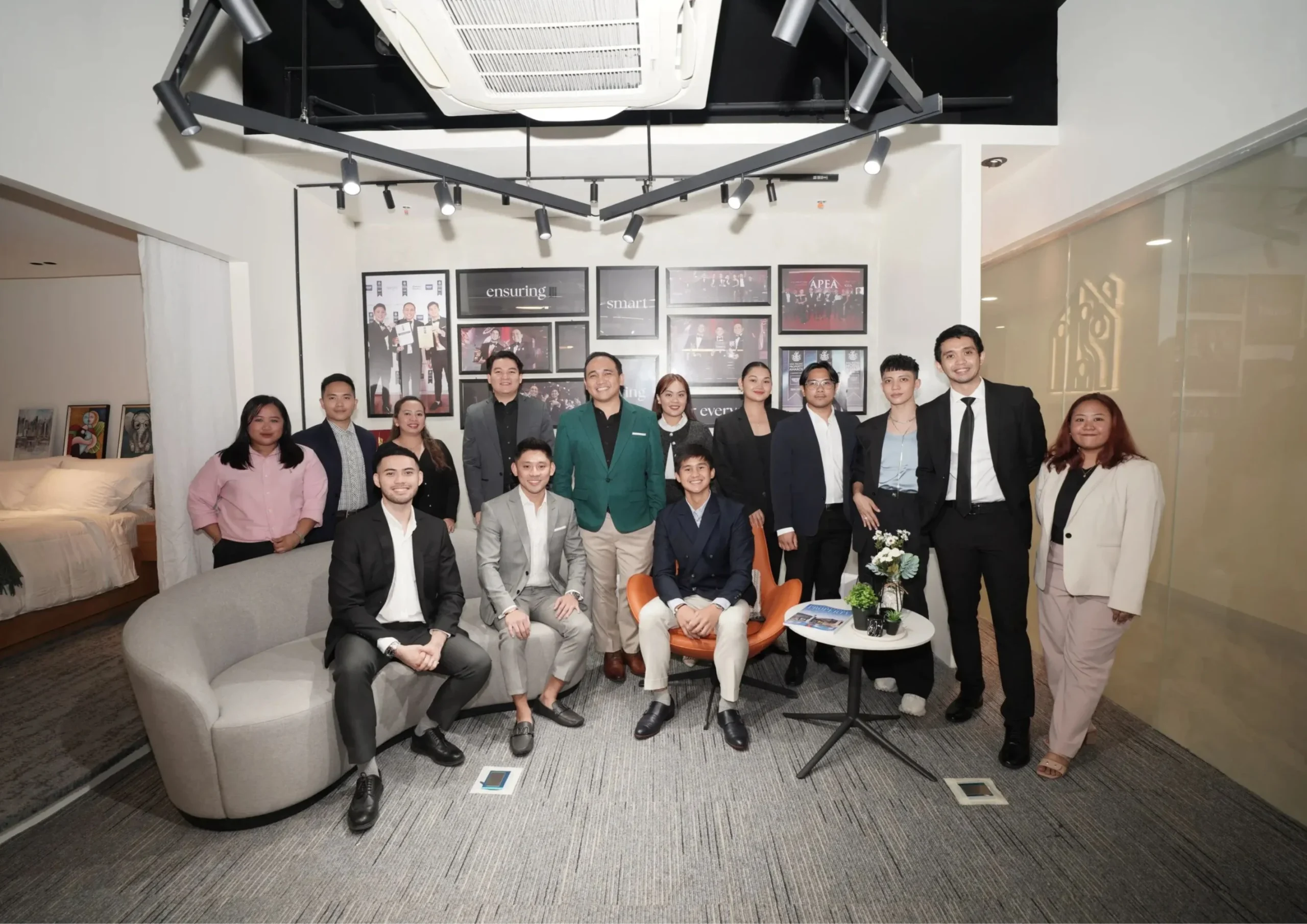
Smart Offices & Smart Hotels: The Future of Intelligent Spaces Unveiled at Glaston Tower
Smart Home Philippines has officially launched its new showroom at Glaston Tower, providing a first-hand look at the latest innovations in smart office and smart hotel solutions. As part of a two-day event, the brand welcomed its partners and clients to experience cutting-edge automation, energy efficiency, and seamless integration designed to revolutionize workspaces and hospitality environments.
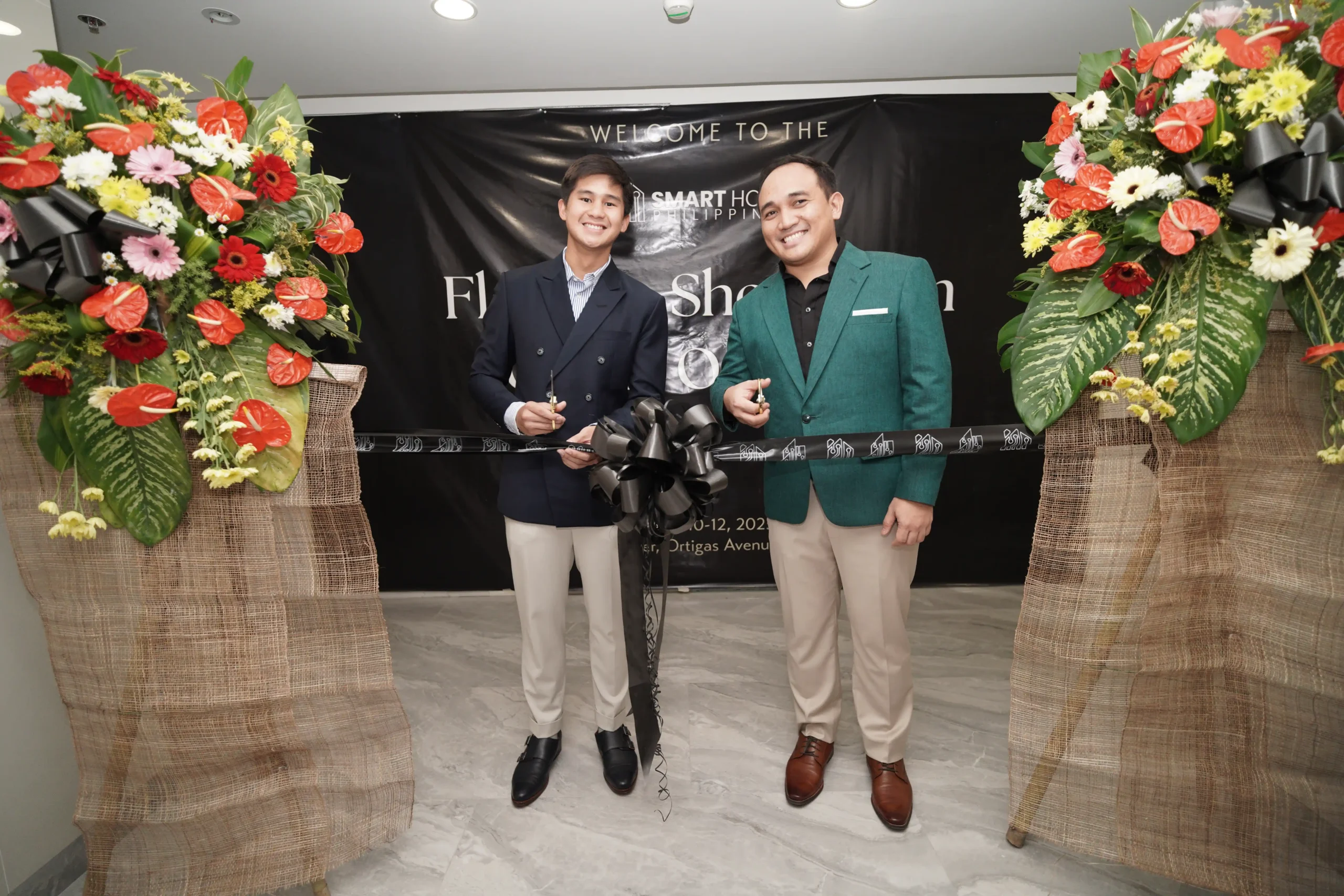
The event kicked off with a warm welcome from Kitch La Victoria, CEO and Co-Founder, and Miguel Barlisan, President and Co-Founder, who shared their vision for the future of smart offices and smart hotels in the Philippines. For the past five years, Smart Home Philippines has primarily served homeowners, but it is now expanding into the office and hospitality sectors. The company emphasizes that smart technology goes beyond individual spaces, integrating seamless solutions that enhance both work and lifestyle environments.
A Unified Smart Ecosystem
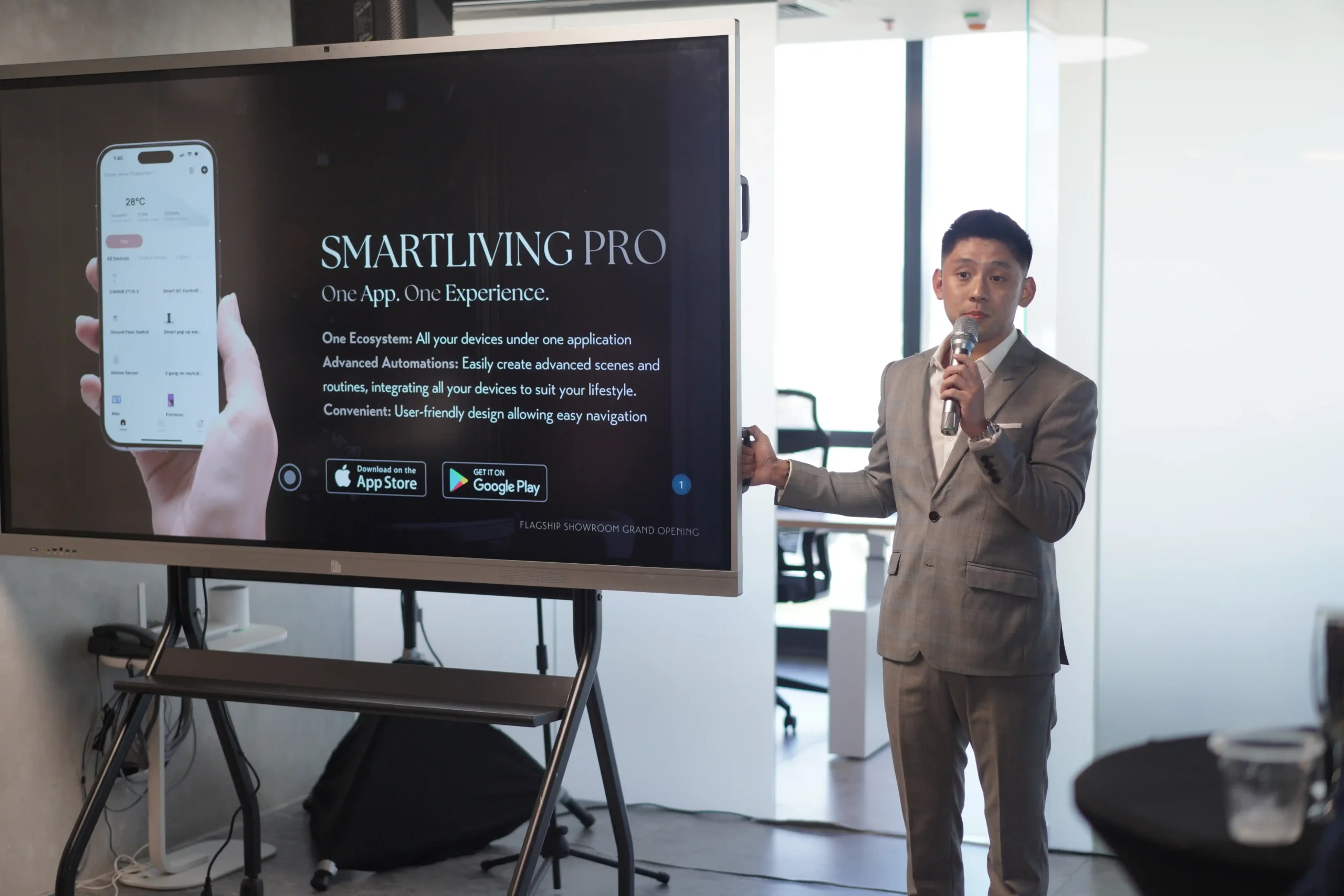
At the core of Smart Home Philippines’ offerings is the ability to integrate multiple devices under a single ecosystem. Director for Sales and Partnerships Carlos Chuaunsu introduced the brand’s new Smart Living Pro app, which consolidates all smart home, office, and hotel devices into one platform.
“All our devices—door locks, curtains, TVs… are integrated under one app,” Chuaunsu explained. “What does this mean? It means that everything is connected, and since this is our own app, we can utilize advanced automations—what we like to call event-based automations.”
Event-based automation enables devices to trigger actions automatically. For example, unlocking a door with a fingerprint can instantly turn on the lights upon arrival at the office, removing the need for manual controls or voice commands. Geofencing further enhances this by allowing users to set location-based triggers that activate or deactivate the air conditioner as they enter or leave a defined area. This seamless automation improves both convenience and efficiency, making spaces more intuitive and responsive.
The showroom also highlighted innovations in shading technology, such as automated curtains and smart film that can provide rooms with more privacy and mitigate heat. These solutions enhance both comfort and energy efficiency, especially in large office spaces and hotels where managing lighting and temperature is crucial.
Transforming the Smart Office Experience
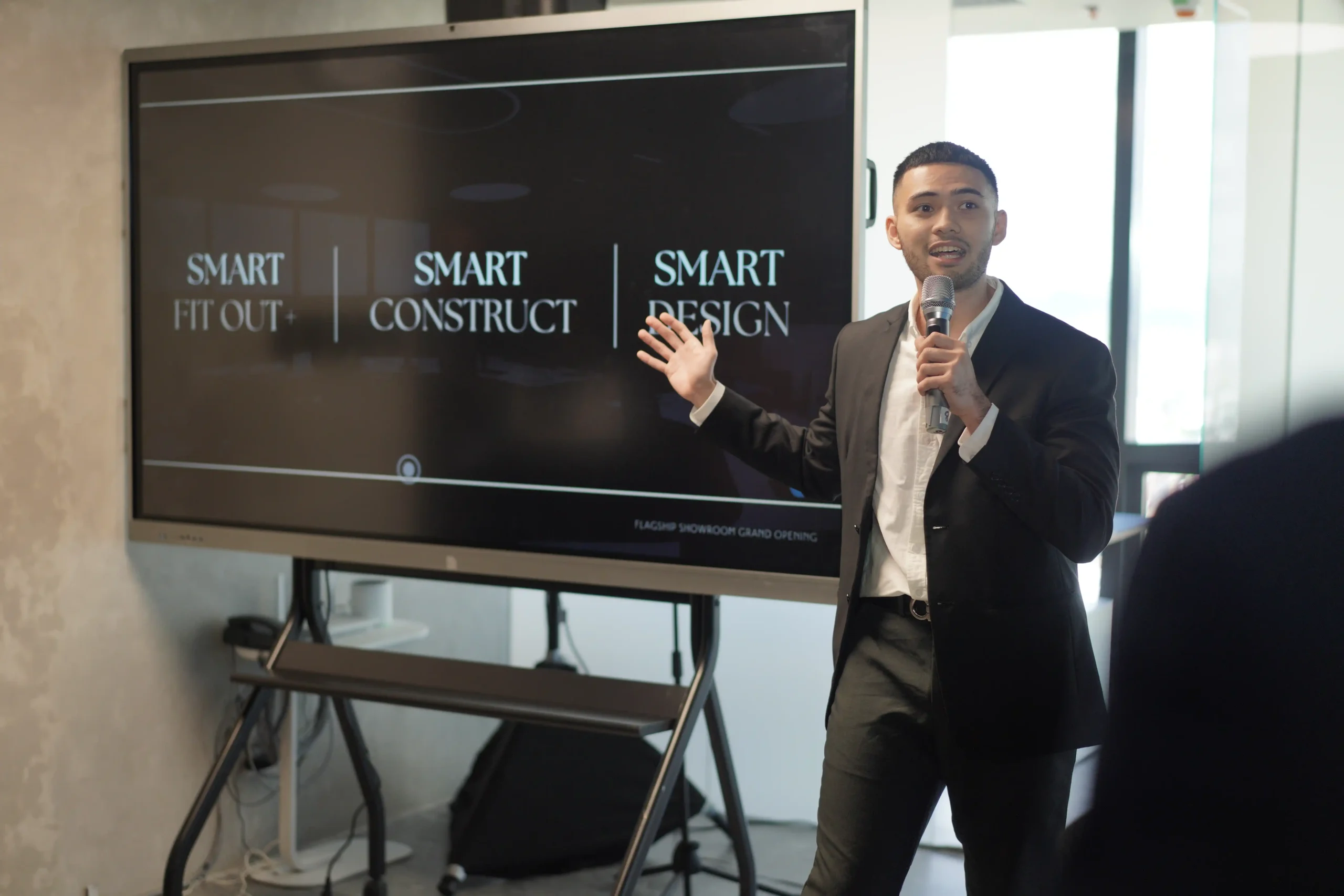
Smart Home Philippines is not just selling individual devices anymore—it is now providing full-service smart office solutions. Office & Hotel Head Brad Vargas emphasized this transition.
“This office won’t only be a showroom, but also a functioning smart office,” Vargas stated. “Before, we were focused on selling assets—smart devices, smart film, smart lighting. But now, we’re offering an overall experience. We want to be at the forefront of the future of workspaces.”
The Smart Office Business Unit now offers three key services. The first is Smart Fit Out+, which includes full-service electrical planning, smart system installation, and workspace optimization. The second is Smart Construct, a service designed to upgrade existing office spaces without requiring a complete overhaul.
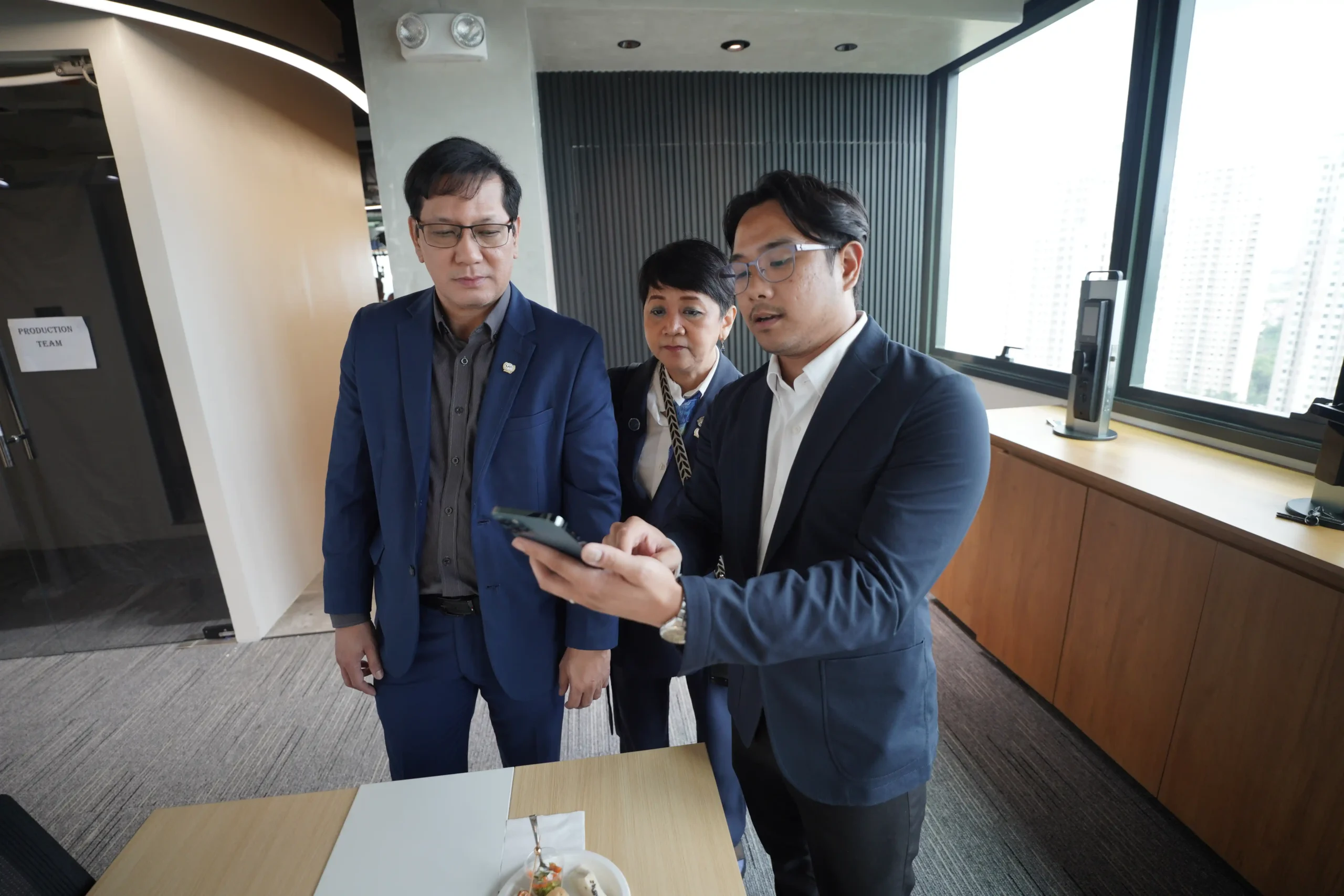
“We know businesses that don’t adapt die. That’s why we offer smart contracts for offices that have been around for 10 or 20 years,” Vargas explained. “We make sure that your office is up to speed with the latest smart solutions.”
The third service is Smart Design, which provides businesses with a customized smart office blueprint that they can implement when ready. “If you’re not ready to go fully smart yet, we can design the concept for you, give you the actual plans and drawings, and when you’re ready, you can build your future office,” Vargas added.
Smart Hotels & the Future of Hospitality
The smart revolution isn’t just about offices—hospitality spaces are also undergoing a transformation. With seamless check-in experiences, energy-efficient room controls, and centralized management, smart hotels are set to redefine guest experiences.
“For the hotel industry, we’re introducing facial recognition-based check-ins. Imagine checking into your hotel without needing a key card—just facial recognition,” Vargas revealed. “At the same time, smart hotel solutions can massively save energy. Imagine managing 300 to 400 rooms efficiently, with everything controlled seamlessly.”
One common concern about smart technology is its reliance on connectivity. With the Philippines’ internet speeds being among the slowest in the region, ensuring system reliability is a priority. “What happens if your Wi-Fi goes down? Does your smart system go down too?” Vargas posed. “We all know how connectivity can be here. That’s why we’re finding ways to make these systems more reliable and efficient.”
Designed for Productivity and Flexibility
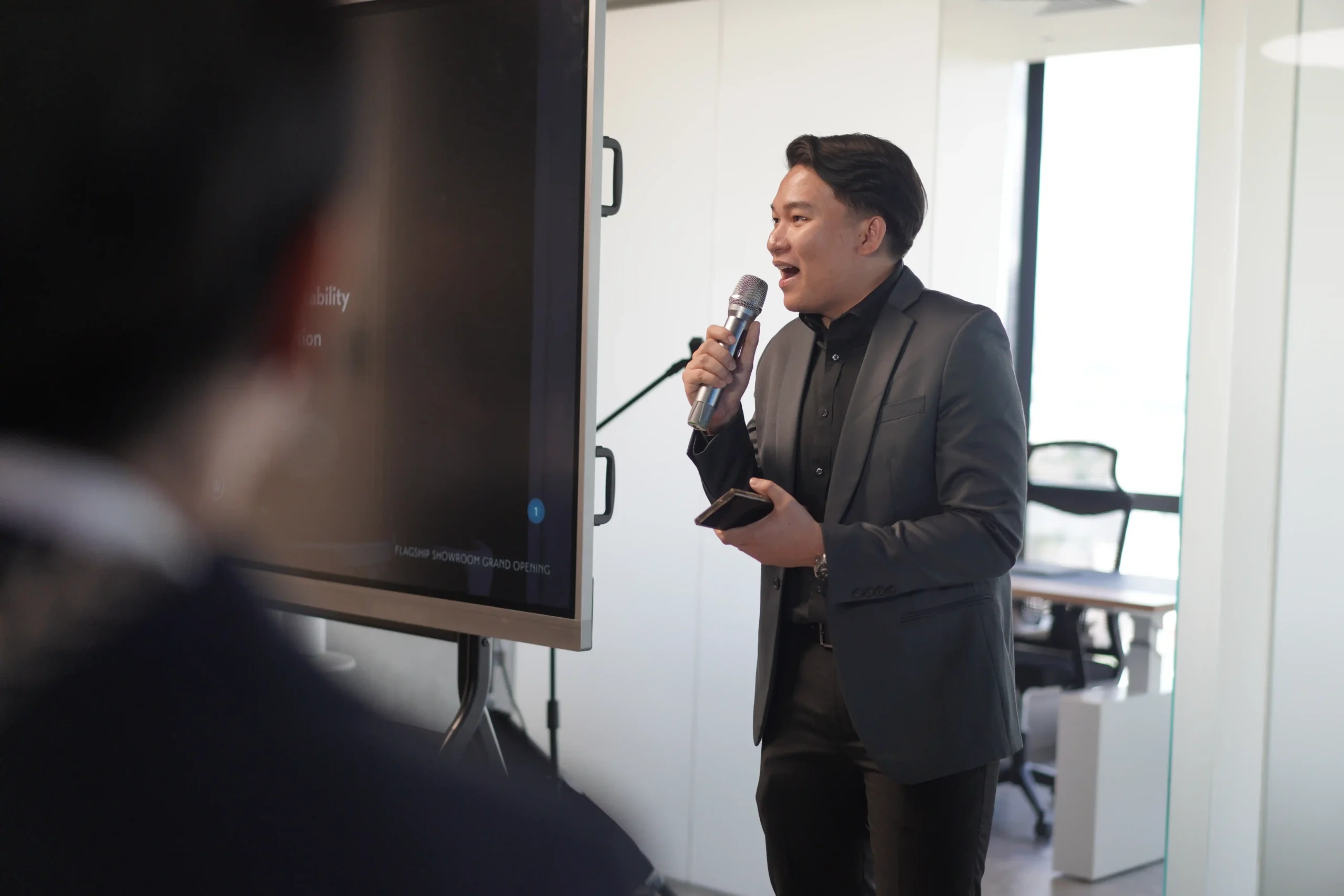
Beyond technology, the event also emphasized the importance of designing smart spaces that enhance productivity and well-being. Principal Architect Jack Simon Ty shared key insights into the role of design in smart workspaces.
“A smart office isn’t just about automation—it’s about creating an environment that enables productivity,” he said. “A poorly designed space leads to employees feeling unmotivated, which impacts their work.”
He explained that an effective smart office should support productivity and well-being by ensuring that employees have an environment conducive to focus and comfort. When designed with flexibility and adaptability in mind, it makes spaces modular and scalable to accommodate changing team sizes and work styles. Lastly, sustainability should be a priority, with energy conservation playing a crucial role in reducing overall consumption through smart technology.
Reimagining Office Spaces for the Future
The shift towards smarter, more connected spaces is no longer just a vision—it’s happening now. Companies are moving away from rigid, traditional office structures and embracing collaborative, experiential workspaces powered by automation and AI.
“For us, it’s about thinking forward,” Vargas concluded. “The future of smart offices isn’t just about technology—it’s about integrating design, efficiency, and user experience to create better spaces for people to work and live.”
With the successful launch of its Glaston Tower flagship showroom, Smart Home Philippines is setting the stage for businesses to embrace the next generation of smart office and smart hotel solutions—a future where spaces are not just functional, but intuitive, adaptive, and sustainable.
Visit their new showroom today, check out www.smarterhomes.com.ph, and follow their Instagram accounts @smarhomedevicesph and @smartofficephilippines to find out more.
Photos courtesy of Smart Homes Philippines.
Read more: Smart Home Philippines Wins Best Interior Design in London, United Kingdom


